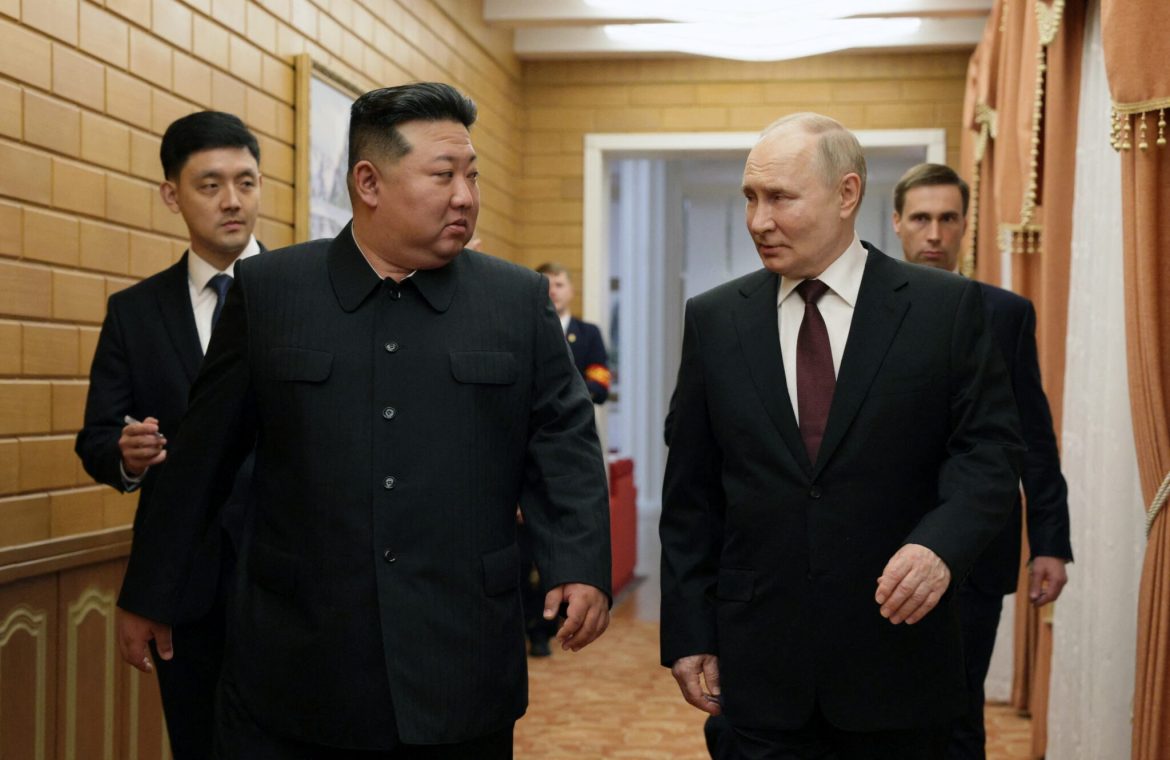North Korea has officially approved a significant defense treaty with Russia, as reported by state media on Tuesday. This development marks a strengthening of security collaboration between Pyongyang and Moscow, occurring during a time when Russia is deeply involved in the conflict in Ukraine. The Korean Central News Agency (KCNA) confirmed that the agreement had been formalized as a decree from North Korean leader Kim Jong Un.
The treaty finalization follows a series of diplomatic engagements between the two nations. Reports indicate that the agreement was originally inked during a meeting between Kim Jong Un and Russian President Vladimir Putin earlier this year in Pyongyang. During this meeting, both leaders agreed on mutual defense obligations, further cementing military ties. This partnership is seen as a response to rising geopolitical tensions and mutual concerns over international security dynamics.
The North Korean government has not disclosed the specific terms of the pact, but analysts suggest that it likely includes provisions for mutual defense and military exchanges. The agreement coincides with increased global scrutiny over North Korea’s missile and nuclear programs. The country has faced numerous international sanctions due to its continued weapons developments, which have been widely condemned by the United States and its allies.
Russia’s involvement with North Korea comes as it faces significant pressure from Western nations over its actions in Ukraine. The conflict has seen Russia trying to bolster its international alliances, and the partnership with North Korea may be part of a broader strategy to diversify its diplomatic and military relations. This alliance likely provides North Korea with needed economic and technological support, which has become increasingly vital due to stringent sanctions.
The defense treaty also reflects a historical relationship between Russia and North Korea. Both countries have maintained diplomatic ties since the Cold War era. The Soviet Union was among the first to recognize North Korea after its establishment in 1948. Over the decades, the relationship has experienced fluctuations, primarily influenced by changing global political landscapes. However, the current agreement indicates a renewed commitment to cooperation, particularly in military matters.

